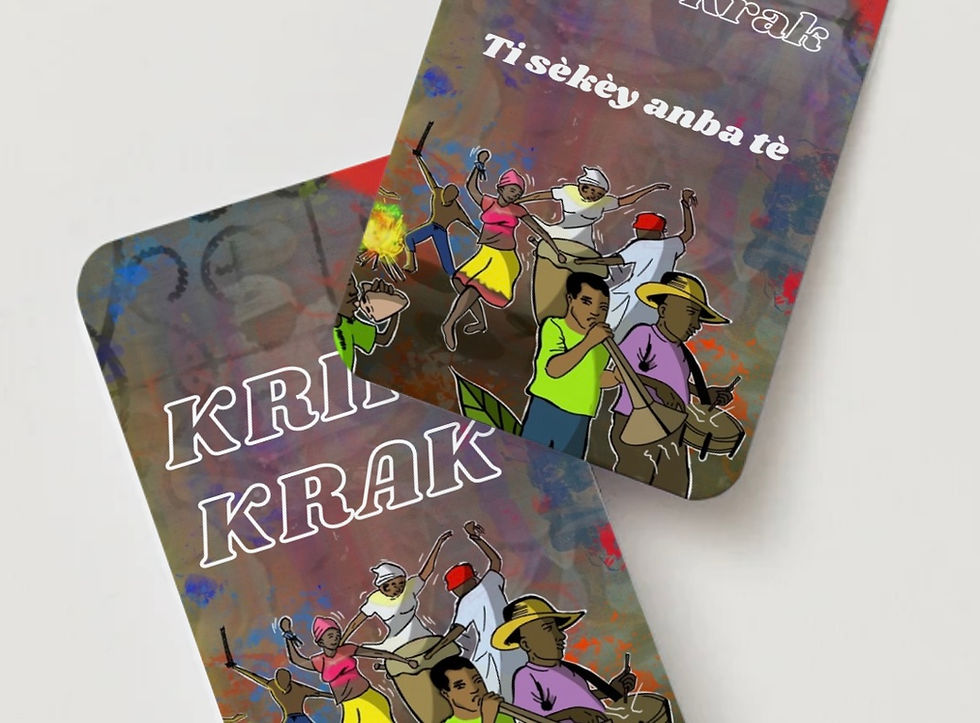
How it All Started
My name is Lynn Schadzar Pierre
Ever since I was young, I’ve had a deep love for my culture. As a Haitian immigrant, I’ve seen how easy it is for us to slowly lose pieces of our identity while trying to adapt to life in another country. I’ve always carried this desire to keep our culture alive, especially for the next generation growing up abroad who may never truly know what it means to play marèl on a Sunday or tire kont with your family.
I created Krik krak to help people (re)connect with Haiti and its culture specially those in the diaspora or younger generations who may feel disconnected because they’ve never had the chance to visit the country. Growing up, I wasn’t really surrounded by traditional games and that made me curious. I wanted to learn more about them and after doing some research, I realized that many of these cultural elements were slowly being lost over time. Then I felt the need to create something that could preserve and share these traditions in a fun way
Krik Krak is a playful bridge between tradition and today. Whether you grew up in Haiti or have never been, Krik Krak is here to help you reconnect, rediscover and most importantly jwe ansanm.










